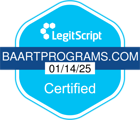If you (or someone you know) is pregnant and is dependent on opioids such as painkillers or heroin, you probably have questions about opioid withdrawal and your newborn. Pregnant women with opioid dependency need to get help as soon as possible. Your baby needs the best opportunity for survival and a healthy beginning. You know that your decisions are no longer just about yourself; you’re now thinking for two. There’s no reason to be afraid because treatments are available that are safe for you and the baby. Medication-assisted treatment manages withdrawal to ease the symptoms and stop the cravings.
When you’re thinking about opioid withdrawal and your newborn, you’re not alone. The National Center on Substance Abuse and Child Welfare reported that women with a substance use disorder represent 10 to 11 percent of all pregnancies. The statistics about opioid withdrawal and newborns come from The American College of Obstetricians and Gynecologists (ACOG). They estimate that one percent of pregnant women use opiates. However, urine analysis in some hospitals reflect a number that is more than double the ACOG estimate.
Here are a few things that women want to know about opioid withdrawal and their newborn:
Questions About Opioid Withdrawal and Your Newborn
If I take medication-assisted treatment, is that really any better for my baby than heroin or pain pills?
Absolutely yes. Methadone or Suboxone withdrawal is much easier for your newborn than withdrawing from heroin or pain pills. It is extremely stressful and difficult for babies to withdraw from heroin. Unfortunately, the number of babies that go through opioid withdrawal is increasing. It’s a tragedy, because it doesn’t have to be that way.
How can I get over the fear that I feel about going through opioid withdrawal?
Counselors at medication-assisted treatment centers don’t judge you. They want to help you get the treatment you need for you and your baby. You may be afraid of what the father of the baby will say or do, and you may be afraid that Children’s Services will come and take your baby, and possibly other children. And, you may be afraid of being arrested. Take a friend with you for support, or do whatever you have to do to overcome your fears. Getting medication-assisted treatment during your pregnancy gives you caring professionals to help you get through this.
What will happen to my baby?
If you don’t get treatment, your baby may be born with birth defects. With any type of opiate use, neural tube defects can occur such as spina bifida, as well as rare defects of the newborn’s abdominal wall. Other issues include increased rates of low birth-weight babies, premature separation of the placenta from the uterus, premature labor, or fetal death. There is also a syndrome called “Neonatal Abstinence Syndrome” (NAS). The syndrome affects 55 to 94 percent of babies born to opioid-addicted mothers. The severity depends on what drug the mother has been using, how much per day, and for how long.
How does Neonatal Abstinence Syndrome affect my baby?
You can expect splotchy skin, irritability, excessive crying, diarrhea, hyperactive reflexes, excessive sucking, poor feeding, sleep problems, sweating, trembling, vomiting, stuffy nose, increased muscle tone, fever, or even seizures. Studies done on children who were born addicted but have reached school age demonstrate more difficulty in the classroom, both behaviorally and scholastically. Babies and children are also affected by the drug-using culture when it continues in the household. Symptoms are less drastic in babies whose mothers took methadone or Suboxone during the pregnancy under the care of a physician.
So what can I do about opioid withdrawal and my baby?
You, the mother, can make it easier for opioid withdrawal and your newborn. First, when you begin treatment as early as possible in your pregnancy, your obstetrician can arrange for pediatric specialists to help. You want people who understand the issues and can work to make you and your baby as comfortable as possible.
It’s important to know that medical professionals want the best for the baby. The fact that you’re seeking treatment shows that you care and want to do the right thing. Please don’t be afraid to seek medication-assisted treatment if you’re pregnant. In fact, you should be afraid not to. Call your local methadone program to learn more.


